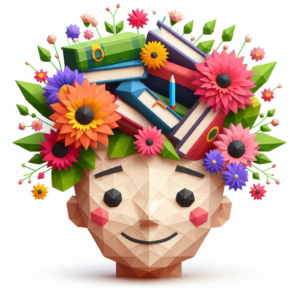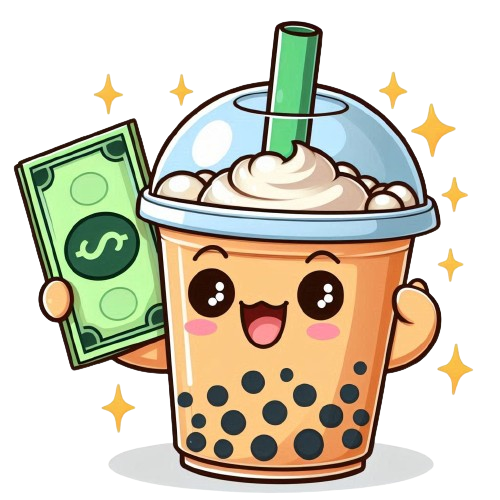When I was a child, I loved visiting the Mobile Library truck that came to my neighborhood every weekend. My sister and I would go and borrow books, and we’d always enjoy the free air conditioning. Hong Kong summers are hot! 🥵

Despite these weekly library trips, I stopped reading when I was a teenager. Then, at age 32, I started reading again — and I’ve read between 70-100 books each year since then. It has made a huge difference in how I think and live.
O’Reilly (not the auto parts retailer)
During COVID, I joined a mid-sized HRIS startup as a Site Reliability Engineer (SRE). To my surprise, I had an excellent work-life balance and lots of free time so I started exploring my company’s perks.
Through my team, I had free access to O’Reilly, a popular platform with many learning resources like videos and books. I started exploring the platform, initially by watching videos, and later by reading books. I started with lighter reads like The Phoenix Project and Patrick Lencioni’s books and eventually branched out to more work-related topics like writing clean code, leading teams, people management, and time management. With each new book I read, I became a better developer and communicator.
After I had read about a dozen books, I wanted to expand my knowledge a bit more, but it felt like O’Reilly’s selection was mostly tech-focused. So I looked elsewhere…
Prime Reading
Mrs. Chuy is an avid Amazon shopper and she and I share her Amazon Prime account. During my research, I saw that Amazon Prime comes with a service called Prime Reading, which offers a limited selection of books with no extra charge. Since the service was “free”, I started reading. After a few months, I realized that the books that I wanted to read were very often not included in the program, which felt a bit like putting a cookie in front of a hungry boy but didn’t allow him to eat it. So I pretty quickly upgraded to Amazon Unlimited in order to access more books.
Amazon Unlimited
Amazon Unlimited is a subscription program that has a pretty large book selection and, at the time, offered a free trial and cheaper rate for the first 3 months. Outside of the trial, the subscription fee was (and still is) fairly affordable at $11.99 per month. This allowed me to read many books under various categories like financial health, personal health, religion, history, politics, autobiography, and others (yes, I mostly read non-fiction). At some point, I also signed up for Audible to access audiobooks, but that’s another story for another time.
Later, to reduce my eyestrain, I bought a refurbished Kindle Paper White to read the books. It’s very portable, has a weeks-long battery life, and the e-ink screen is easy on my eyes, so I find reading through the Kindle even more enjoyable (although I will switch to reading more physical books when baby Chuy is older. We can all use less screen time).
Now, $11.99 per month isn’t too expensive, but I did put “FREE education” in the article title, didn’t I? Because I am cheap, I started searching for free options and found Libby.
Libby

Libby is a platform that partners with public libraries in the US to lend ebooks and audiobooks. All you need to do is enter the library card number of a partner library to access the library’s catalog, and you can enter library cards from multiple partner libraries to access a bigger book selection. In my case, I am fortunate enough to possess library cards from Los Angeles County Library and Southern California Library Cooperative, and between the two HUGE catalogs, I have a lot of books to choose from.
If you don’t have a library card, you can just sign up for one. Some libraries, like LA County Library, allow you to sign up for a digital library card online as long as you are a county resident, while some libraries require you to go there physically to apply for one. In either case, it’s very easy and free to get one. As an aside, some library cards, especially the LA County one, give you extra perks like free state park parking passes.
Libby is the successor of the Overdrive app which I briefly tried using in the mid-2010s (I was testing it for my father who was and still is an avid reader), but the Overdrive app’s UI was harder to use and the book selection was extremely limited, so I am please to find Libby to be superior in almost every way. It is easy to do the basic library functions like search, filter, borrow, return, and renew the books, and I can sync the mobile app and the web app (libbyapp.com/) by copying a 1-time setup code generated from one app and paste that code to the other app, no username/password required.
One of my favorite features of Libby is that it allows you to read books on your Kindle. I love that I can send books from my Libby library to my Kindle e-reader. Because of this, I ended up canceling my Kindle Unlimited subscription and Audible subscription.
Libby isn’t perfect, though. For one, the books are from the library system and therefore act like library books. This means that you can only borrow one book for at most 21 days at a time, and there are limited copies of each book, so you might have to wait for some of the more popular books in the system. You can renew books as long as no one else is waiting for your copy. Luckily, there are no late fees, so the books will simply be returned to the library when they are due. I don’t mind the wait time, as I can usually find another book to read in the meantime.
Also, Libby’s book selection depends on how many books your local libraries are providing, so if you live in a small town, your library (assuming that they partner with Libby) may have a small catalog. Amazon and other bookstores will almost always have a bigger catalog and you get to keep the books – you just have to pay for them. In my case, despite having access to two very big library catalogs, there are still books that I cannot find for some reason, so I have purchased a few of them on Amazon and put the others on my Goodreads to-read list (technically Mrs. Chuy’s list, but we share the account) or my Elfster wishlist for future reference.
Finally, Libby is not the only game in town. There are other similar apps like Hoopla, I just haven’t used them because I am satisfied with Libby. but if you have used other similar platforms, please let me know by leaving a comment.
And if you prefer learning in another format such as listening, or video-watching, I will write about those later.
Why read
I learn in different ways, but reading is my favorite. When I listen to audiobooks or podcasts or watch videos, I often find myself zoning out because I would start doing something else at the same time, just because I can. Reading doesn’t allow multitasking – I am either focusing on the words or I am not.
Reading is also an activity that I find relaxing and can do anywhere, like in my bedroom, in the family room, on the beach, or the train. Depending on my mood, I can either read in complete silence or put on some background music, the options are endless.
Simply put, all learning formats have their pros and cons, but I personally love reading, especially with my Kindle e-reader.
How reading changes me for the better
Reading gives me knowledge that I otherwise would not have received from experience. I grew up in a lower-middle-class family in a busy Westernized city as a fairly sheltered kid, so as I grew up, I was afraid of trying new things, getting dirty, and generally had black-and-white thinking. And now, each book I read gives me something to think about and changes my perspective. I like to think I am more open-minded now and willing to try anything that is not too risky. In other words, each book makes me stronger.
Here are two examples of recent books I read that have impacted me:
Book example 1: Extreme Cuisine
Extreme Cuisine examines unusual foods from around the world, including dogs, cats, exotic plants and animals, poisonous fish and snakes, animal organs, human waste, human flesh, and animals that are still alive. It’s fascinating to see how one cuisine is revered in one culture and taboo in another. Because of this book, I am now more open to trying different kinds of food, aside from some of the more extreme ones. I told Mrs. Chuy that if she heard of a reputable restaurant that serves cat meat, I would try it.
Book example 2: Cockpit Confidential
Cockpit Confidential is a book about the history and lesser-known details about airplanes and the commercial airline industry. It covered stories like the Tenerife Airport Disaster (the deadliest accident in history by number of death of airplane passengers) and the September 11 Attacks in vivid detail, which were both terrifying and fascinating.
Despite some scary recent incidents like the Singapore Airlines Flight Turbulence that killed one passenger and injured others, or Boeing planes falling apart, I’ve come to appreciate the overall safety and complexity of the industry.
Summary

It’s known that the more educated you are, the more likely you will become successful. By writing this post, I want to tell you 2 things.
First, education is free. Even if you can’t use Libby where you are from, there are other forms of free education. (Have you heard of YouTube?) And even if you can’t access the free education, there are affordable options like the aforementioned Kindle Unlimited which is $11.99 a month, and books are generally very cheap, usually cheaper than a meal. And it is a worthy investment.
Second, reading is a great way to learn. I learned a lot in school, but I feel like I’ve learned more since I started reading at 32. This is partly because I’m older and can learn more effectively, and partly because I’m motivated: I can choose to read what I want, whereas, in school, I can’t skip classes I’m not interested in. That being said, if you prefer another learning format, do that instead, you won’t hurt my feelings.
What are you waiting for? Let’s get learning!

